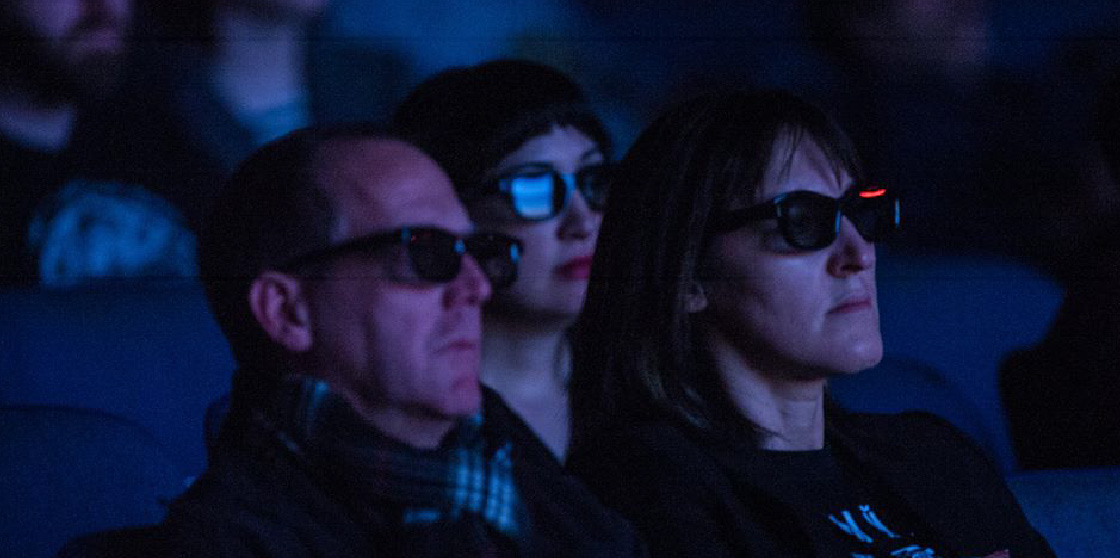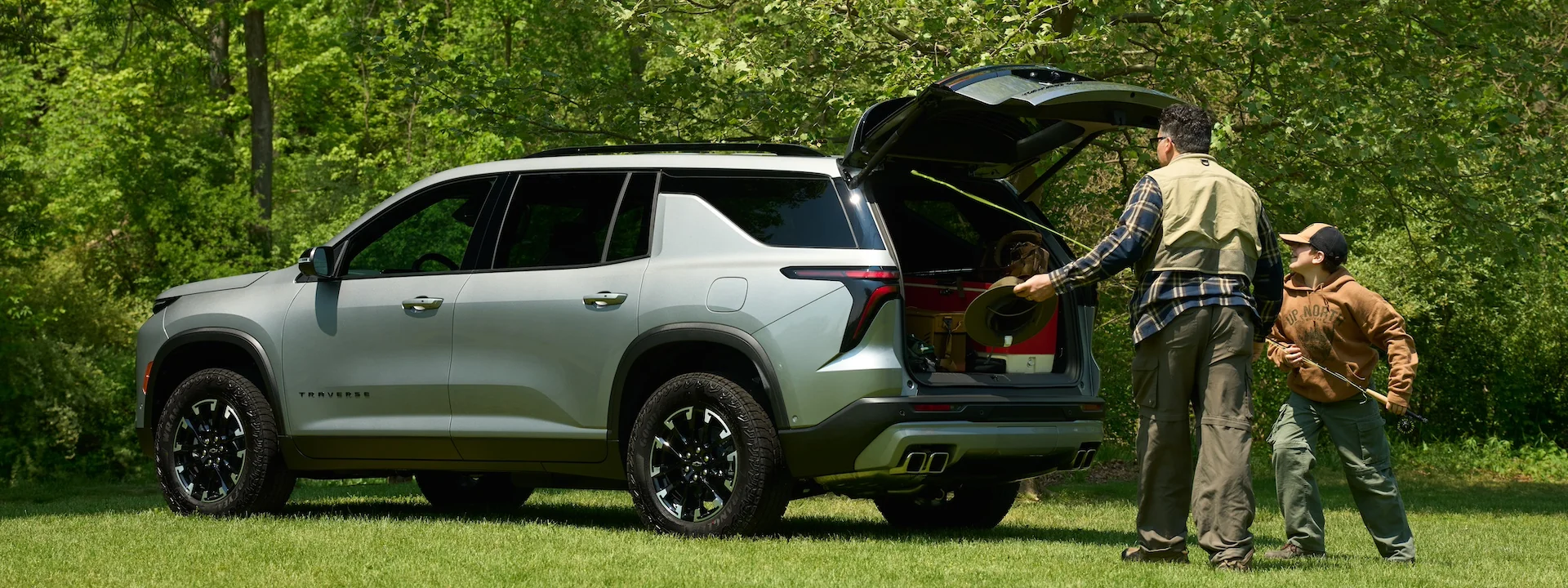Pack up for a day of fishing and fun with the Chevy Traverse. You'll be hooked on the spacious cargo area and advanced tech.

Photo Courtesy of Ann Arbor Film Festival.
It’s an annual tradition: The Ann Arbor Film Festival has been entertaining audiences for more than half a century, bringing bold, experimental films to the public in a way that felt fresh and exciting every year. Then, coronavirus and social distancing arrived.
To ensure the safety of its audiences and allow filmmakers to show their work, the Ann Arbor Film Festival pivoted in the best way. This year, the 58th annual event will be presented as a free, live-streamed online event. The six-day festival will take place – on the computer screen.
How did the festival go from potential cancelation to an online event? It took emergency meetings, a huge commitment and a talented crew to pull it together so quickly, explained Festival Director Leslie Raymond.
“We are in a really unique position because we have a great team,” including tech director Tom Bray, who is a technology specialist at the University of Michigan, and the film festival’s board chair and vice chairs, all who have a vast amount of knowledge and resources. “It is a major brain trust right there.”
That kind of talent and leadership made a virtual festival possible, Raymond said. Postponing it wouldn’t work because it takes the whole year for the small, three-person staff to put the event together. Plus, Raymond said they all “felt a deep commitment to our filmmakers to make it happen in some way and to our audience.”
“This was the best way forward,” Raymond said.
To be accessible for all, the online event will be streamed through Vimeo in real time, or when the movie was originally supposed to be seen during the festival schedule. Also, moderated live question-and-answer sessions with filmmakers will be streamed following the film screenings in order to continue discourse between filmmakers and the audience. In good news for the people who made the films and their blood, sweat and tears, the festival organization said the jurors will fulfill their commitment of reviewing programmed films in competition in order to confer the $22,500 in awards. The Ann Arbor Film Festival receives more than 3,000 submissions annually from more than 65 countries and serves as one of a handful of Academy Award-qualifying festivals in the United States. The AAFF is a 501(c)(3) non-profit organization sustained by the support of donors and members, foundations and sponsors and audiences. Some of this year’s highlights include: The Dimension of VON LMO. This film, which will be shown on Tuesday, March 24, or the opening night of the festival, is described as “a distorted portrait of an artist,” which is intriguing enough. It will tell the story of VON LMO, a musician, artist and self-proclaimed “alien hybrid” who was part of the late 1970s New York No Wave music scene. Somatic Cinema at Home and In the World. Filmmaker Lynne Sache will present her work about photographing the human body on Wednesday, March 25. The New York-based artist will tell the story of how her work has evolved from when she began making films in 1987 to the present as well as how we should look at the human form from behind the lens. History, and how we interpret it, sometimes depends on where we find ourselves geographically as well as politically. This film, which will be shown Thursday, March 26, looks at all sides of a common story viewed through a Congolese election. The idea is to consider how four filmmakers, all with different backgrounds and points of view, come at the same event and share their insights. What doesn’t show up on camera sometimes can be as frightening or dramatic as the scene that makes it. What We Left Unfinished, which will be aired Sunday, March 29, takes five unfinished films from the Communist era in Afghanistan and considers what they have to say and what was left unsaid. The films are not rated, so viewer discretion is advised. Newbies should read this blog post to know what to expect. According to Ann Arbor Film Festival organizers, “All programs are intended for mature audiences unless otherwise noted. Some films have imagery of a stroboscopic nature.” (Stroboscopic basically means a strobe light or strobe-lighting effects, so people with certain medical conditions may want to take precautions.) Future Language
My Body, Your Body, Our Bodies
Faire-part
What We Left Unfinished
One caveat



